Failed Citizens or Failed States?
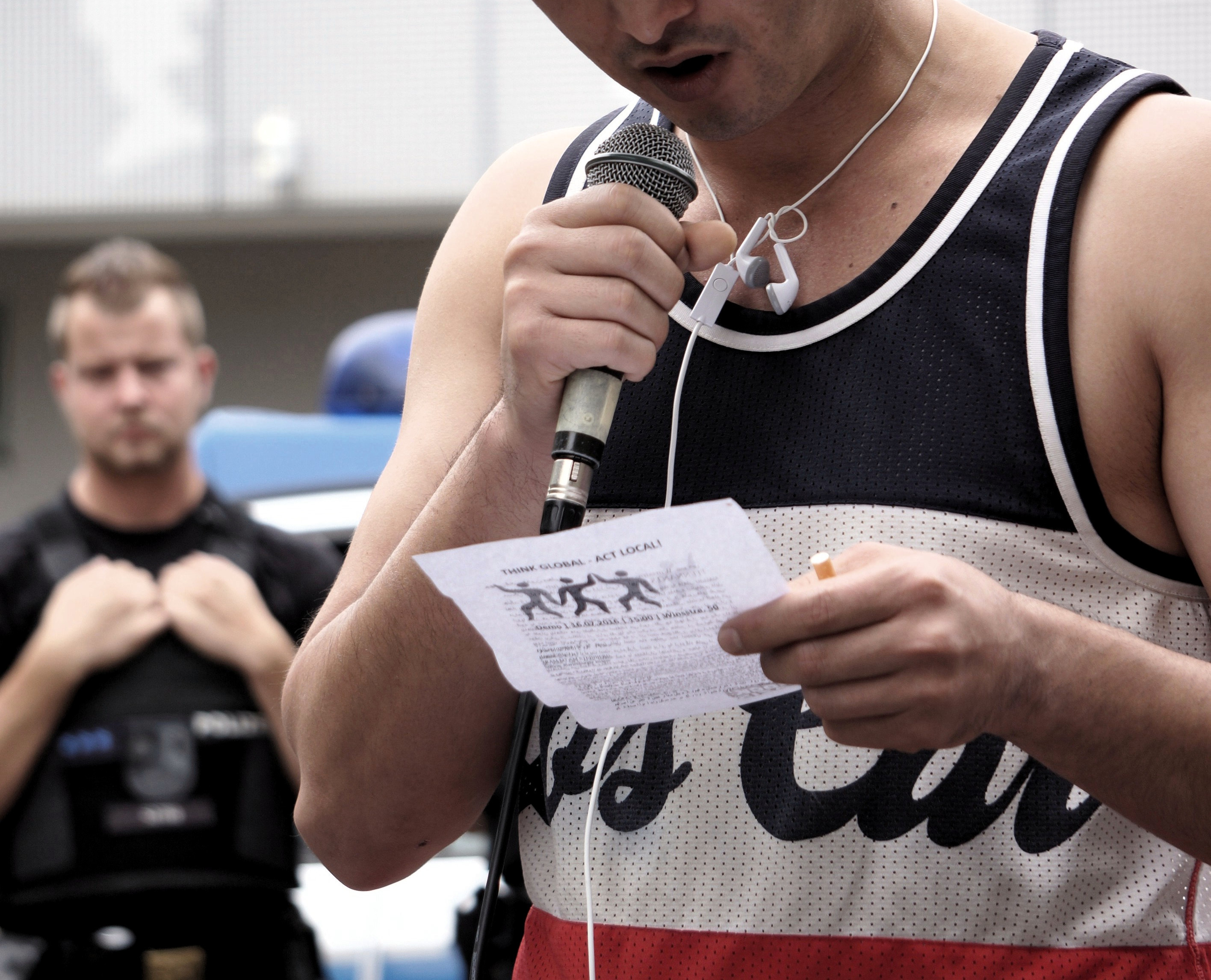
What does it man for any person to become a citizen, today? What does it mean for citizens and non-citizens alike to become political actors in fields of dissent? Such questions come urgently to the fore when – as in the present – conflicts are flaring up with exceptional heat. Exploiting this trend, right-wing populisms are promoting escapism and warmongering – thereby bringing about failed citizens and failed states. In contrast, the FRIENDLY FIRE conference wished to explore how we could embrace conflicts in order to make societies more democratic. To begin with, the project explored one major site of today's conflicts: the politics of citizenship. Together with the ZK/U the Berliner Gazette (BG) hosted researchers, activists, coders and journalists from more than 25 countries. They embarked upon fruitful debates and productive cooperation. The results are presented below.
Documents
Welcome
Videos, Projects, Audios, Texts
Photos
Videos
Impressions
Valentina Pellizzer (activist)
Interviews
Eleanor Saitta (coder + theorist)
Felicity Scott (historian)
Interviews
Ingo Günther (artist)
Projects
(Un)Belonging
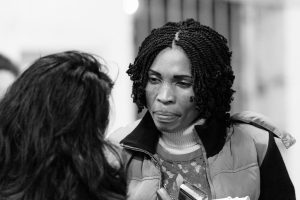
What does it mean to be stateless today when our whole world is permeated by the idea of the nation state? There are different scenarios of statelessness: some individuals are stateless by force, some have denounced their citizenship voluntarily. In some cases, people feel stateless because they do not identify with the state they belong to, or perhaps the state they would like to belong to does not exist. In this multimedia essay a group of journalists, coders and activists explored different issues surrounding statelessness. What is it? And does anyone benefit from it? Check out their project by clicking here.
Bioradical
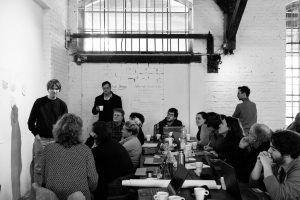
Today, biometric technologies are publicized as infallible and unchallengeable verifiers of the truth about a person – the ultimate guarantors of citizenship. A group of coders, artists, journalists, cultural workers and activists took this propaganda at face value and created a fictitious start-up called Bioradical. Here, all visions of the biometric revolution are twisted and turned upside down into a radically dystopian model for citizenship. Their ultimate slogan: "Forget the border. Enter the bio-order." Check out their playful project by clicking here.
Mutant City

The citizen as someone who politically and economically participates in an urban community – this idea is echoed in the French word "citoyen" (citizen), which derives from "cité" (city). But what could a city look like in which such an idea of citizenship can be realized? How would it be constructed? A group of researchers, cultural workers and activists explored visions for a city that would enable a participatory, grassroots, democratic and egalitarian citizenship. Revisit the citoyen-cité nexus of ideas and embark upon dreams of the utopian city by clicking here.
Rethinking citizenship
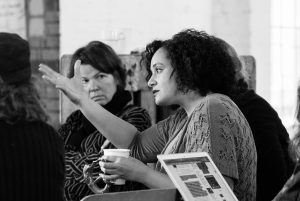
The opportunities for economic and political participation in Western societies are not equally distributed: What does it mean to look at this problem from the point of view of people who are systematically disadvantaged because they do not have the "proper papers" (such as, for instance, asylum seekers)? How can one gain a new perspective on this problem by rethinking the notion of political actors and redefining citizenship as such? A group of activists and artists tackled these questions and came up with a number of ideas, thoughts and questions. Check out their results by clicking here.
X-Ship
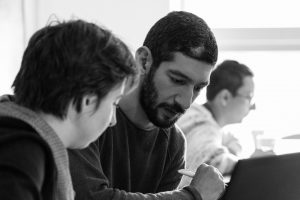
Our offline and online lives have become inseparable, so that nowadays citizenship is inseparable from digital citizenship. Corporations and governments are collecting data on us, our activities, our preferences, etc. – all this data enables citizen classifications, such whether one is a "good citizen" and a "credit worthy citizen" or not. And, ultimately, whether one is a "citizen or non-citizen". Against this backdrop, a group of artists, journalists, cultural workers, coders and activists created a utopian model for digital citizenship called X-Ship. Check out their playful project by clicking here.
Audios
Unboxing Data-Driven States
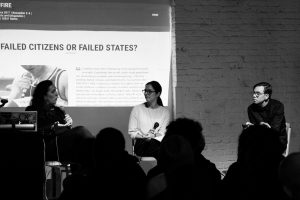
"There is only life and power, not digital and non-digital life and power," as the hacker and political theorist Eleanor Saitta pointed out in her discussion with artist and writer James Bridle. To listen to their talk – moderated by Anna Sauerbrey – click the play button below.
Commodifying Non-/Citizenship

"The commodification of citizenship is a great danger to political life," stated the journalist Atossa Abrahamian and the artist Ingo Günther discussed this tendency with activist Jennifer Kamau. To listen to the talk – moderated by Harsha Walia – click the play button.
Strategic Reversals of Power
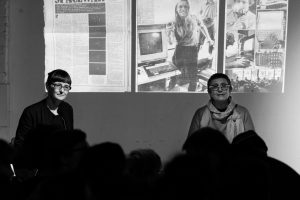
"Critiques of police can be hijacked by powerful players," as the architectural historian Felicity Scott noted when discussing alternative models of citizenship. To listen to her talk – moderated by Valentina Pellizzer – click the play button below.
Texts
Interviews + Essays
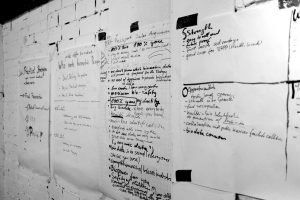
Please read the following interviews and essays by the key note speakers of the conference: Atossa Abrahamian about the commodification of citizenship; James Bridle about algorithmic citizenship; Deborah Cowen about the nexus of warfare, logistics and citizenship; Ingo Günther about the possibility of world citizenship; Eleanor Saitta about algorithmic states of exception and possibilities for insurgent citizenship; Felicity Scott about hippies, hackers and illegalized migrants as role models for citizenship.
These contributions were published as a collaboration between Berliner Gazette and its media partners openDemocracy and ExBerliner.
Book
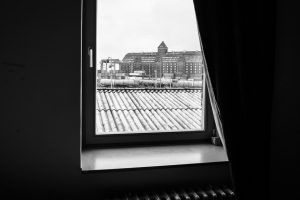
What does it mean to be political today? What does it mean to belong? At the heart of these issues lies the politics of citizenship. By interlacing photography and writing, Krystian Woznicki explores how we can expand our horizon beyond memes such as the “refugee crisis” or the “surveillance state”. As an experiment on re-defining citizenship his book FUGITIVE BELONGING discloses what we all have in common: something that emerges when the dichotomy of the excluded and the included is contested and when the conflicts that result from that dichotomy are rendered productive. More info at Diamondpaper.
This book is published in conjunction with the FRIENDLY FIRE partner project SIGNALS.
Beiträge auf Deutsch
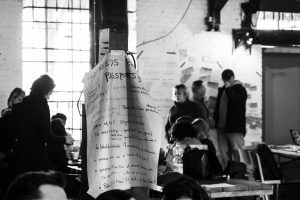
Lesen Sie in deutscher Sprache folgende Beiträge von den Keynote-SpeakerInnen der Konferenz: "Zugehörigkeit als Investition: Die Warenwerdung der Staatsbürgerschaft – und unsere Alternativen" von Atossa Abrahamian; "Algorithmische Staatsbürgerschaft und digitale Staatenlosigkeit: Zum Projekt Citizen Ex" von James Bridle; "Politik der Logistik: Wie Lieferketten sowohl Staat als auch Staatsbürgerschaft auf den Kopf stellen" von Deborah Cowen; "Weltbürgerschaft vs. Nationalismus: Was könnte eine globale Vernetzung von Geflüchteten bewirken?" von Ingo Günther; "Algorithmische Ausnahmezustände: Wie könnte eine aufständische Staatsbürgerschaft aussehen?" von Eleanor Saitta; "Hippies, Hacker und „Illegale“: Wie die Krise des Staates die Grenzen des Politischen verschiebt" von Felicity Scott.
Conference Program
Are digital non-/citizens the status quo?
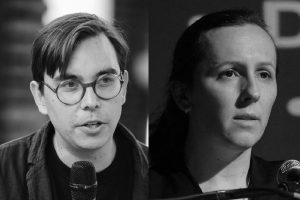
Thursday | Nov. 2 | 7:30 p.m.: Are Digital Non-/Citizens the Status Quo? Two prolific speakers will look for answers: the artist James Bridle, whose visionary project "Citizen Ex" reflects digital citizenship and the political thinker Eleanor Saitta, whose work explores the potential of radical democracy and consistently challenges the blind spots of the digital avantgardes.
Moderated by Anna Sauerbrey, who is a Berlin-based journalist, this public talk will reflect the politics of citizenship with regard to the rampant digitalization of people's lives – be they citizens or not.
Who Claims Global Citizenship?
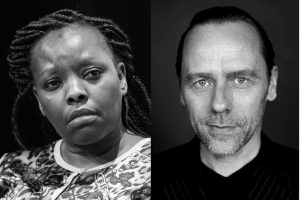
Friday | Nov. 3 | 7:30 p.m.: Who Claims Global Citizenship? Two prolific speakers will discuss this question: the media art pioneer Ingo Günther, whose project "Refugee Republic" envisions a global network of refugee shelters and the activist and researcher Jennifer Kamau, who facilitates a migrant network called International Women Space.
As a warm-up to this public talk, there will be a statement by the journalist Atossa Araxia Abrahamian, whose book "The Cosmopolites" has triggered a debate about the commodification of citizenship. Moderated by Harsha Walia, a Vancouver-based activist, this public talk will reflect on global citizenship from the points of view of both the super-rich and the underprivileged.
How is citizenship changing in war times?
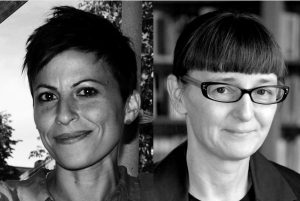
Saturday | Nov. 4 | 3 p.m.: How is citizenship changing in war times? The architectural historian Felicity Scott will look for answers. Her Silicon Valley research sheds new light on the emergence of the military-entertainment complex and the states of exception in networked societies. Moderated by Valentina Pellizzer, a Sarajevo-based cultural worker, this public talk will reflect the crises of citizenship in the context of war.
As a warm-up to this public talk, there will be a statement by the geographer Deborah Cowen, whose books "War, Citizenship, Territory" and "The Deadly Life of Logistics" explore the politics of violence in the global age. Moreover, the workshop groups (see below) will present their results: position papers, multimedia storytelling projects, etc.
After this talk, please join a cooking party with Pepe Dayaw starting at 6:30 p.m.
Workshops
Register and Join
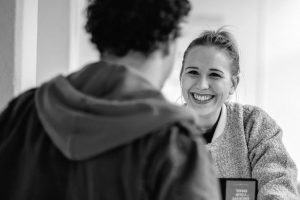
The open call for the workshops targets (upcoming) hackers, journalists, activists and researchers. A limited number of participants was is able to register by contacting the following E-mail: info (at) berlinergazette.de. Deadline is October 20. Registration fee: 50 Euro, incl. catering. Please note: The five workshops will be running in parallel fashion, hence everybody is invited to commit to one single track. On November 2-4, the workshops will take place from 10 a.m. to 6 p.m. The conference hosts will provide catering throughout the entire conference, including warm lunch. A series of guided city walks is planned for lunch breaks!
Explore Citizenship

To tackle the key issues of the conference, five parallel workshop tracks will offer five different approaches for a constructive critique of citizenship as a framework for political participation: "Who needs Biometric Passports?", "Are Asylum Seekers: Political Actors?", "Who risks Mutant Citizenships?", "Who benefits from Statelessness?", "What is it to be an Algorithmic Non-/Citizen?". The workshops will bring together over 100 activists from all over the world. The BG has invited key actors from the international scene to form the core of the five workshop tracks, more participants will register/join via an open call.
Collaborate

The workshop groups will encompass approximately 15 people, partly invited by the conference organizers, partly registered via the open call. Moderated by experienced facilitators, all workshop groups are invited to work on collaborative resources dedicated to the respective track theme. The results will be made available as online resources via berlinergazette.de. They can include position papers, multimedia storytelling projects and collections of ideas. Check the workshop results from the previous BG annual conference and find photos from the workshops here.
Who needs Biometric Passports?
Guests: Nicolás Bello, Detlef Borchers, Phoebe Braithwaite, Alina Floroi, Kristoffer Gansing, Aude Launay, Morana Miljanovic, Fabian Peckelsen, Marta Peirano, Rebecca Puchta, André Rebentisch, Christina Rogers. Moderators: Ela Kagel & Christopher Senf.
Are Asylum Seekers Political Actors?
Guests: Amira Ahmad, Arwa Alladin, Sabrina Dittus, Taraneh Fazeli, Valeria Graziano, Bernd Hatesuer, Susie Kahlich, Annika Seibt, Jo van der Spek, Cassie Thornton, Harsha Walia. Moderators: Jennifer Kamau & Jaron Rowan.
Who risks Mutant Citizenships?
Guests: Laura Burtan, Harlo Holmes, Matthew Linares, Frauke Mahrt-Thomsen, Valentina Pellizzer, Brett Scott, Teo Vadnjal, Jaroslav Valuch, Elena Veljanovska. Moderators: Max Haiven & Nina Pohler.
Who benefits from Statelessness?
Guests: Susanne Braun, Géraldine Delacroix, Paul Hirsch, Inga Lindarenka, Monisha Caroline Martins, Sara Moreira, Miriam Quick, Catherine Sotirakou. Moderators: Claudia Núñez & Cristina Pombo.
What does it mean to be a digital non-/citizen?
Guests: Zeljko Blace, Martha Dörfler, Daphne Dragona, Gosia Jagiello, Martyna Kalvaityte, Katrin M. Kämpf, Cory Levinson, Riho Matsuda, Juliane Rettschlag, Andreas Schneider, Koji Takahashi, Çağrı Tașkın, Niloufar Vadiati. Moderators: Sabrina Apitz & Michael Prinzinger.
Our Crowd, our mission
Information
The ZK/U is a laboratory for inter-disciplinary activities centered on the phenomenon of the city. Its work is informed by theoretical and practice-based critiques developed in disciplines such as geography and anthropology. It promotes exchange on global issues in the light of what is happening in one’s own backyard. Working with local and international partners, residencies bring together critical minds at the intersection of artistic production and urban research. Address: Siemensstrasse 27, 10551 Berlin. Look at this map.
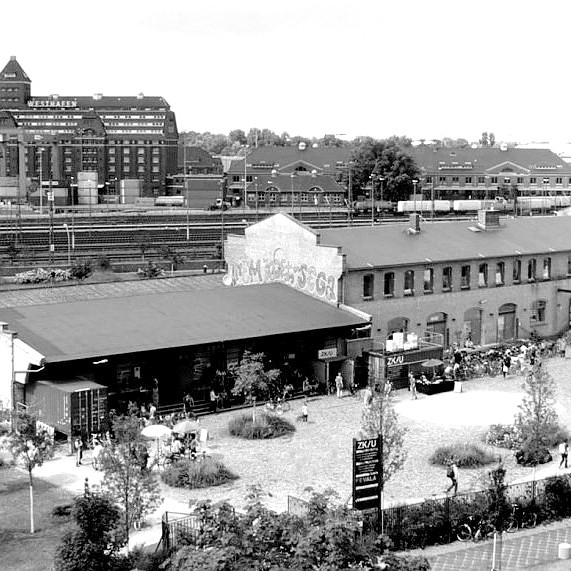
Venue
The organizer of the conference is Berliner Gazette (BG). As a nonprofit and nonpartisan team of journalists, researchers, artists and coders we analyze and test emerging cultural as well as political practices. For more than 15 years we have been publishing berlinergazette.de under a Creative Commons-License – with more than 900 contributors from all over the world – and also organizing annual conferences and editing books. Mail us your suggestions under: info(at)berlinergazette.de

Organizer
The conference language is English – after all, people from more than 20 countries are coming together.

Language
You can find us on social networks, for example on twitter or on facebook. The hashtag is: #bgcon17.

Social Networks
Debate online: Essays, interviews and reports covering the most pressing issues of the TACIT FUTURES debate are published in the Berliner Gazette (in German). With contributions by activists, thinkers and artists. Have a look here: berlinergazette.de.

Online Debate in German
Photos from the conference will be published here where our FRIENDLY FIRE warm up events have been already documented. Now have a look at other BG photo albums or at our previous annual conference TACIT FUTURES.
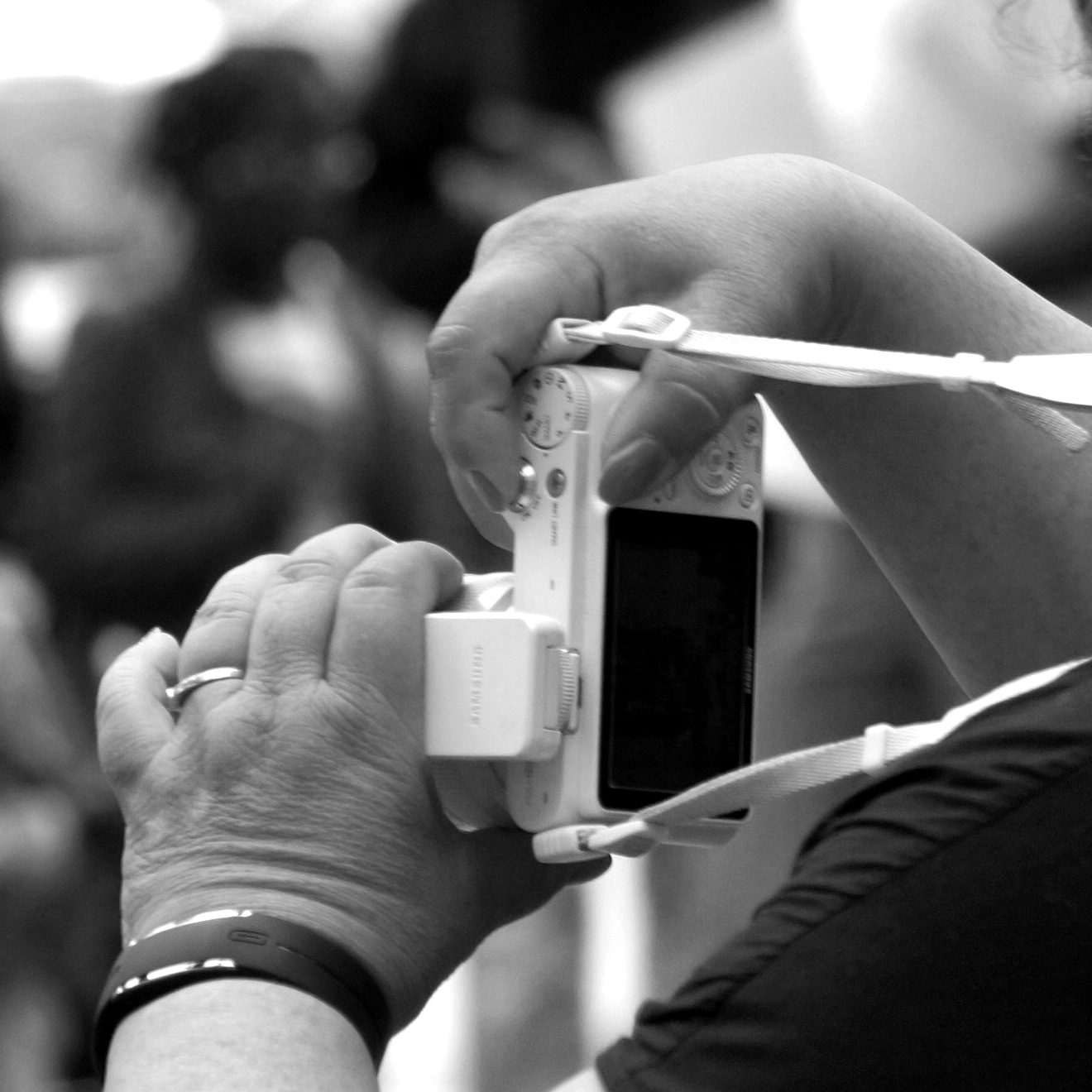
Live Photos
“SIGNALS. An Exhibition of the Snowden Files in Art, Media and Archives” is an international project organized by Berliner Gazette. The exhibition will close with a special event one day before the FRIENDLY FIRE conference. More info here.
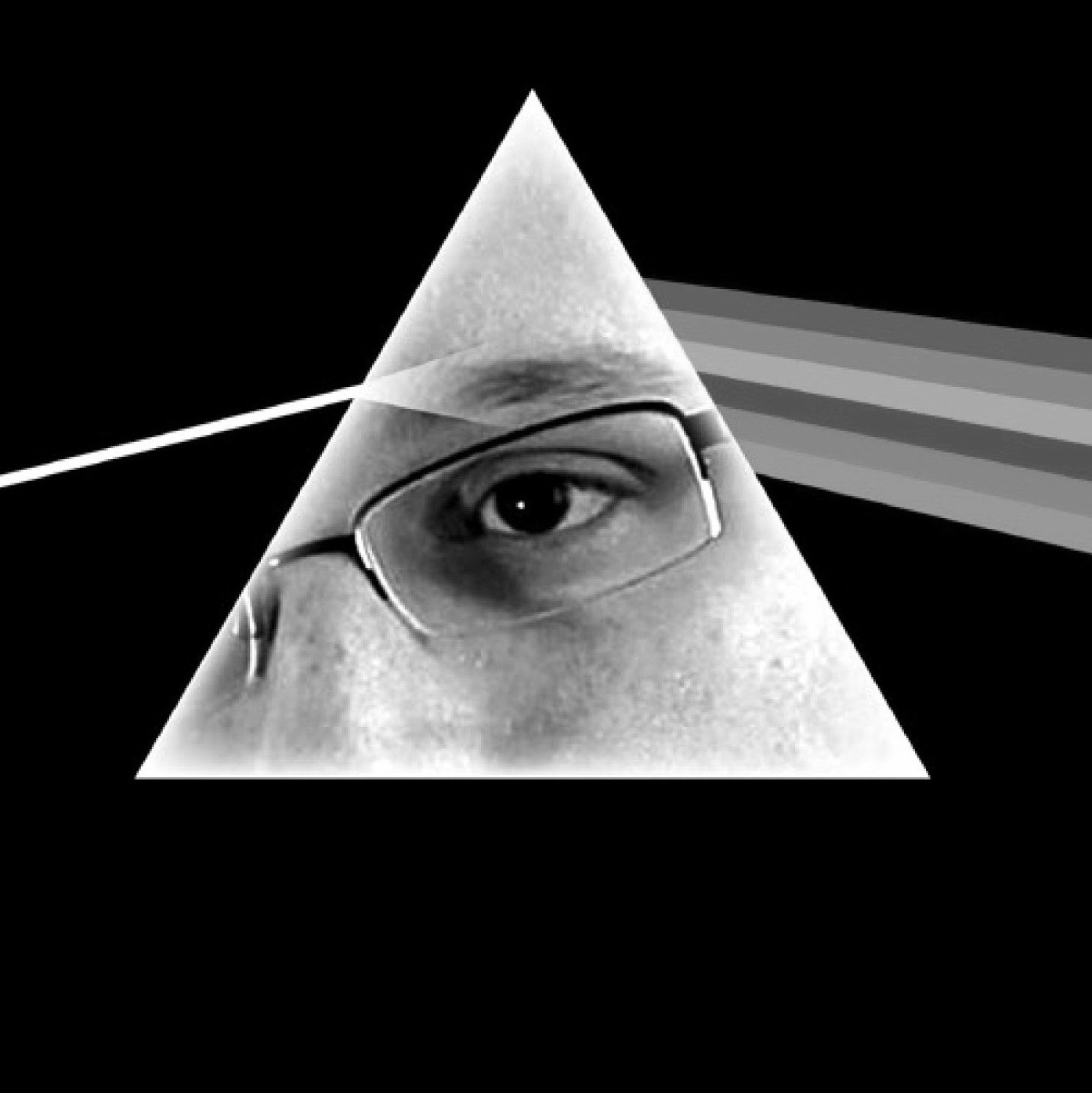
Exhibition
Partners













